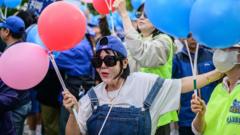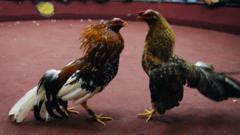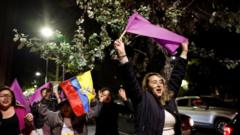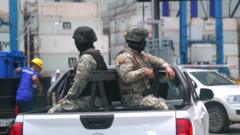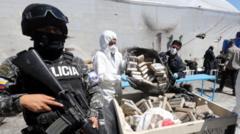As citizens in Machala prepare for a crucial decision, their choice reflects the broader issues facing the nation: a battle against rising crime and economic hardship.
Ecuador's Presidential Race: Tension and Uncertainty in Machala

Ecuador's Presidential Race: Tension and Uncertainty in Machala
Ecuador's looming runoff election sees fierce competition between two contenders vying to combat drug violence and unemployment.
In Machala, a city that once thrived economically, despair is palpable as residents grapple with drug violence and a stultifying job market. With the impending runoff election set for Sunday, locals find themselves divided between President Daniel Noboa and his challenger, Luisa González.
Machala, situated south of Guayaquil, serves as a stark representation of the struggles currently afflicting Ecuador—chronic unemployment and a surging security crisis fueled by drug-related conflicts, both of which dominate voters' concerns.
President Noboa, who rose from relative anonymity to the presidency following his predecessor's impeachment, presents himself as the unyielding candidate ready to tackle crime. His campaign is rooted in promises of enhanced security and a commitment to leading Ecuador assertively on the world stage, including dealings with notable global leaders.
In contrast, González, who was endorsed by former president Rafael Correa, aims to leverage the legacy of her predecessor who remains a polarizing yet venerated figure in Ecuadorian politics, despite his controversial tenure marked by corruption allegations.
With banners and campaign materials plastered throughout the streets, the competition between Noboa and González mirrors the city's desperation for a decisive leader who can steer them towards a brighter future amidst mounting challenges. As the clock ticks down to the election, Machala stands at a crossroads, beckoning for a transformative choice from its citizens.



